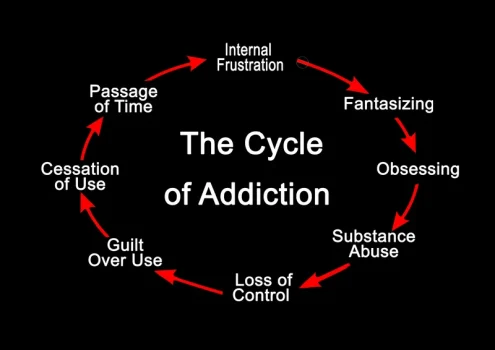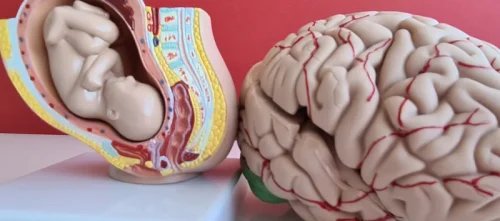New genetic tool predicts risk of liver disease in heavy drinkers

This is of particular concern when you’re taking certain medications that also depress the brain’s function. Alcohol use disorder is a pattern of alcohol use that involves problems controlling your drinking, being preoccupied with alcohol or continuing to use alcohol even when it causes problems. This disorder also involves having to drink more to get the same effect or having withdrawal symptoms when you rapidly decrease or stop drinking.
What Causes Alcohol Use Disorder?
AObtained from GeneCards® [103]; bSamples were obtained from postmortem human brains from alcoholics versus control. Get professional help from an online addiction and mental health counselor from BetterHelp. “Genes explain approximately 50% of cases of alcohol use disorder,” says David A. Fiellin, MD, director of the Yale Program in Addiction Medicine. “These genes are for risk, not for destiny,” stressed Dr. Enoch Gordis, director of the National Institute on Alcohol Abuse and Alcoholism. He added that the research could help in identifying youngsters at risk of becoming alcoholics and could lead to early prevention efforts. Health care professionals use criteria from the Diagnostic and Statistical Manual of Mental Disorders, Fifth Edition (DSM-5), to assess whether a person has AUD and to determine the severity, if the disorder is present.
When Does a Penis Start and Stop Growing?

It is likely that, as for most complex diseases, alcohol dependence and AUDsare due to variations in hundreds of genes, interacting with different socialenvironments. An additional challenge in the search for genetic variants that affectthe risk for AUDs is that there is extensive clinical heterogeneity among thosemeeting criteria. Because the diagnosis of an AUD requires the presence of a set ofsymptoms from a checklist, there are many different ways one could meet thecriteria. There are 35 different ways one could pick 3 criteria from 7 (DSM-IValcohol dependence) and 330 ways to pick 4 from 11 (DSM-5 severe AUD). The clinicalheterogeneity likely reflects the genetic heterogeneity of the disease.
Excessive alcohol consumption negatively impacts many health conditions, such as:

Alcohol use disorder includes a level of drinking that’s sometimes called alcoholism. Just as risk factors increase your chance of experiencing a condition, protective factors lower your risk. Some protective factors, such as natural optimism, may remain fixed over time. Other https://ecosoberhouse.com/ factors, such as friend groups and level of financial security, may be subject to change. The more genetic factors you have, the higher your risk may be of having AUD. That doesn’t mean you’ll absolutely develop AUD if you have a family member living with the condition.
Longevity breakthrough: Scientists uncover key gene that extends lifespan
Therefore, it will be critical to confirm these associations in additional studies. A failure to replicate the initial findings may not always disprove the association but may result from differences in the genetic background of the study participants, the environment, or the study design (e.g., differences in the definition of alcohol dependence). Beyond replication, the exploration of which specific aspects of the alcoholism phenotype each involved gene affects and which other diseases or traits may be influenced by it is essential. Moreover, it will be equally important to determine the potential underlying mechanisms through functional studies, including the use of animal models, particularly those in which candidate genes or alleles are introduced into the organism (i.e., knocked-in). Although much work remains to be done, researchers already have made substantial progress. New technological developments that allow for faster and more complete genotyping and sequencing will accelerate progress, as will technical developments allowing targeted overproduction or inactivation of genes in animal models.

Genetic link between Alzheimer’s and coronary artery disease
Environmental factors, as well as gene and environment interactions, account for the remainder of the risk. Among the behavioral traits parents can pass on to their children is a predisposition toward alcohol abuse and addiction. “Men have an approximately two- to three-fold higher likelihood in developing AUD,” says Adinoff. Women generally consume less alcohol, but they achieve higher concentrations of alcohol in the blood, which makes them more susceptible to organ damage. “A biological child of an individual with AUD is three to four times more likely to suffer from an AUD than someone without this history. The more AUD in the family, and the closer the relationship, the higher the genetic risk,” says Adinoff. Researchers at the University of California at San Francisco (UCSF) are using fruit flies to find the genetic causes of alcoholism.
Genes That Influence Testosterone Production

Pyruvate carboxylase and malic enzyme mediate a cyclic metabolic pathway, which via the mitochondrial citrate and pyruvate transporters results in the transport of acetyl-CoA across the mitochondrial membrane and generation of cytosolic NADPH. An alternative metabolic pathway is the direct conversion of pyruvate into acetyl-CoA via the pyruvate dehydrogenase complex. This metabolic switch channels excess metabolic energy into the synthesis of fatty acids and contributes to the development of fatty liver syndrome during excessive alcohol consumption.
Alcohol-Associated Liver Disease’s Changing Demographics
- This work was supported by grant AA (TFCM and RRHA) from the National Institutes of Health.
- He added that the research could help in identifying youngsters at risk of becoming alcoholics and could lead to early prevention efforts.
- “During our literature search, we evidenced a lack of evidence for Alzheimer’s disease and coronary artery disease traits,” Kirby explained.
Sex and an indicator of the array used for genotyping were incorporated as covariates. “There is also strong evidence of shared genes, particularly the apolipoprotein E (APOE) gene, a well-established risk gene for Alzheimer’s disease, evidenced in the shared genetic architecture between coronary artery disease and late-onset Alzheimer’s disease,” she added. Physiologically, women have a higher risk than men of developing ALD and more-severe disease, even at lower levels of alcohol exposure. According to a 2021 review, several proposed mechanisms might play a role, including differences in alcohol metabolism and first-pass metabolism, hormones, and endotoxin and Kupffer cell activation.

Mitigating Risks of Alcoholism Despite Genetics
Men born in the early 1900s were 2.2 times more likely to drink alcohol and 3.6 times more likely to experience alcohol-related harms than women, according to a 2016 meta-analysis. Men still led in these categories, but only by 1.1 and 1.3 times, respectively. “Moreover, individuals who learn that they are at higher risk through this tool may be motivated to adopt healthier lifestyles to help prevent the progression of disease,” she added. In 1991, the AMA further endorsed the dual classification of alcoholism by the International Classification of Diseases under both psychiatric and medical sections. Many people seek medical treatment for AUD and may work with a therapist to learn coping strategies to minimize alcohol cravings and triggers. Additionally, about 1.7% of adolescents ages 12 to 17 were reported as having alcohol use disorder in 2019.
There isn’t one single “alcohol use disorder gene.” Rather, there are many different genes that may influence whether someone develops an alcohol use disorder. AUD doesn’t form because of a single gene, nor are genetics the only reason why someone develops an alcohol is alcoholism a hereditary disease use disorder. Alcohol use disorder can be hereditary or genetic, which means it can run in families. Children of people with AUD may be 2-6 times more likely to develop problems with alcohol use when compared to those whose parents do not have alcohol use disorder.
